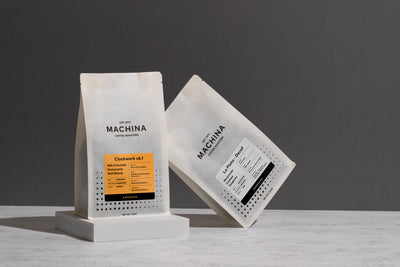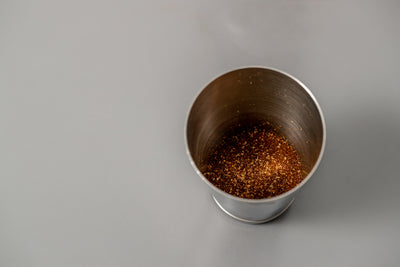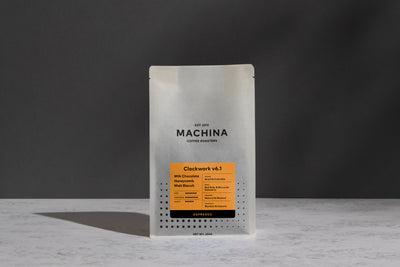
Sustainability
Machina is driven by an ethical and sustainable approach to doing business. This means we consider more than just the bottom line.
SOURCING / RECYCLING / RE-PURPOSING / LOW FOOT PRINT
We also take an open and honest approach to sustainability, implementing practical solutions, that help us move towards our goal to being a carbon neutral coffee business.
fb: none - files/cachoeiras_brazil_producers.png f

Sustainable Coffee Sourcing
Sourcing coffee in a sustainable way is a serious challenge, but one that is crucial to the longevity of the coffee industry.
Knowing that the coffee we source for Machina is grown, processed and traded in a sustainable fashion is not something we can realistically do alone, and requires trust and long standing relationships with key suppliers.
Whether it be how a farm operates considering use of fertilisers, works to organic standards, carries out rotation of crops to main soil quality and avoids the use of pesticides, they all contribute towards a collective goal of protecting the environment through sustainable practices.
On that basis, we only work with a select group of coffee farms and suppliers who not only supply exceptional coffee but are also focused on working to a sustainable model.
fb: none - files/Untitled_design_40_1024x1024_copy_c19cd613-d2ca-40d6-bbfe-fa7a71ad76ad.png f

Recyclable Coffee Packaging
The recycling of coffee bags is a complex one to navigate, mainly due to the unique nature of coffee as a product.
Coffee requires to be housed in a solution that will maintain freshness such as plastic or metal, as it loses flavour extremely fast due to CO2. It also needs to be able to degas post roasting, so requires a one way valve fitted.
After considerable research and testing, we opted to produce bags made from LDPE4, which is low density plastic. This material can be recycled in the same format as bread or carrier bags, available via some kerbside services and most supermarkets.
Our bags are 100% LDPE4, including the bag, rip and valve, making them the easiest bags to recycle, compared to all other option, where separation of some kind is required, but rarely done.
fb: none - files/SisalTech-Rhyze-logo_a08605be-dca1-4473-a79b-01a7514c6409.png f

Positive use of bi-products
As with all business, we produce a series of bi-products (two of major relevance) that would, without effort, go straight to waste, and in some cases, end up in landfill.
The first is chaff (the skin that falls from raw coffee during roasting), which is useful for composting in various formats.
This natural material is passed to a local CIC called Rhyze, who specialise in growing gourmet mushrooms. The chaff we give them provides an ideal platform for the growth of fungi, and in return all our chaff is diverted from waste.
The second is the sizeable build up of coffee bags, which coffee is delivered in when purchased in volume. They are produced from burlap or hessian, which are known more commonly as Jute.
This material is passed to a local company names Sisaltech, who specialise in producing insulation blocks for housing. The result is 100% of materials diverted from waste, and the production of a valuable resource.
fb: none - files/PXL_20220711_142549077_aa632f37-a580-4dcb-a208-087929f54766.jpg f

Travel Vs Planet
There's always been a romantic vision of coffee buyers travelling to origin and agreeing deals termed as 'direct trade', but it's not quite like that in reality.
For us, it raises the question, is travelling to origin to buy coffee justified, considering carbon emissions and the overarching view that our industry segment is supposed to be driven by a positive view to ethics and sustainability?
We do travel to origin, but only when we feel think that it's justified considering a few key questions.
1. Does the volume of coffee we are intending to buy really justify a visit in person to check certain parameters?
2. Do we really need to be there, or could our suppling partner do this without us present?
3. Are there any genuine benefits that support the need to travel, such as staff learning and development, or maintaining key relationships?








